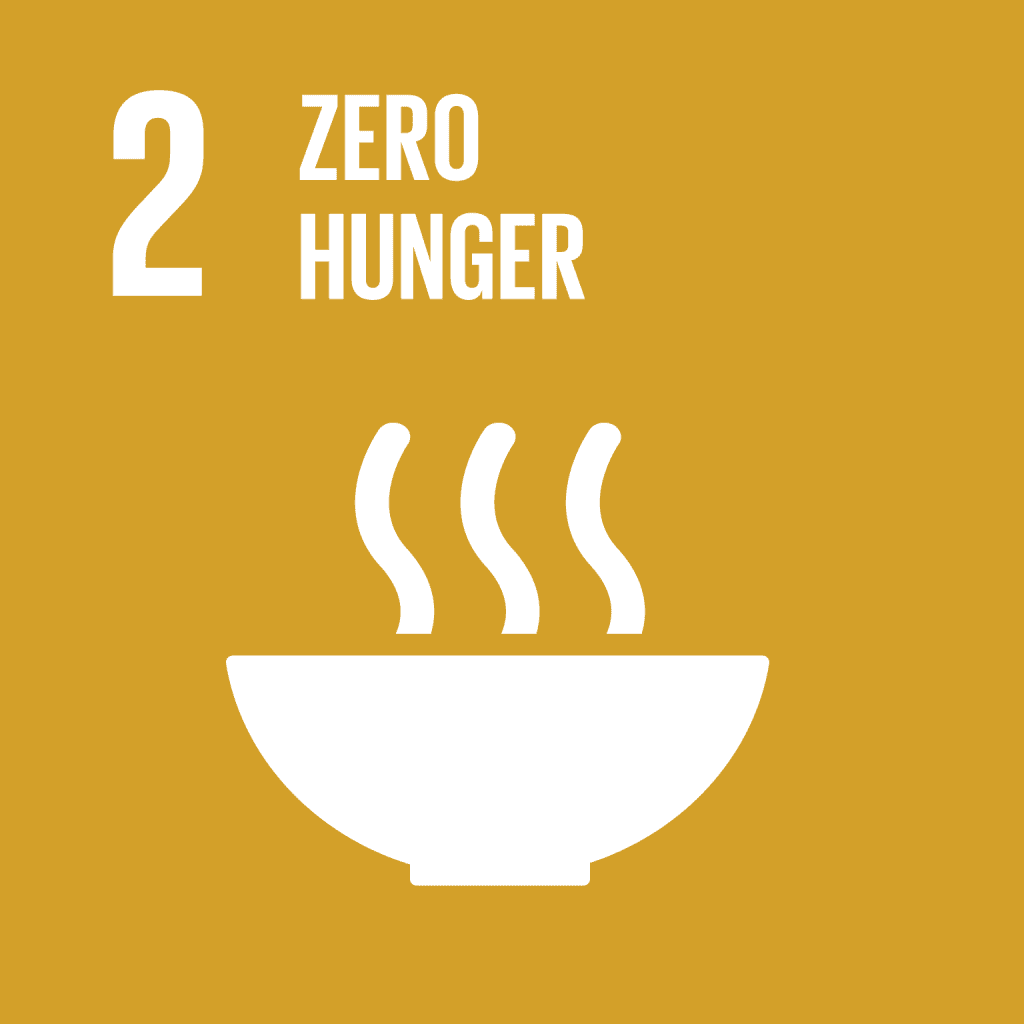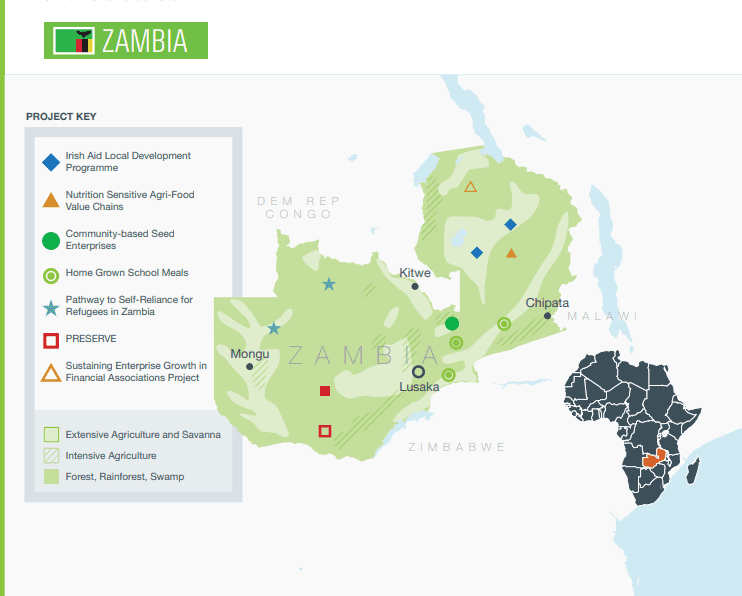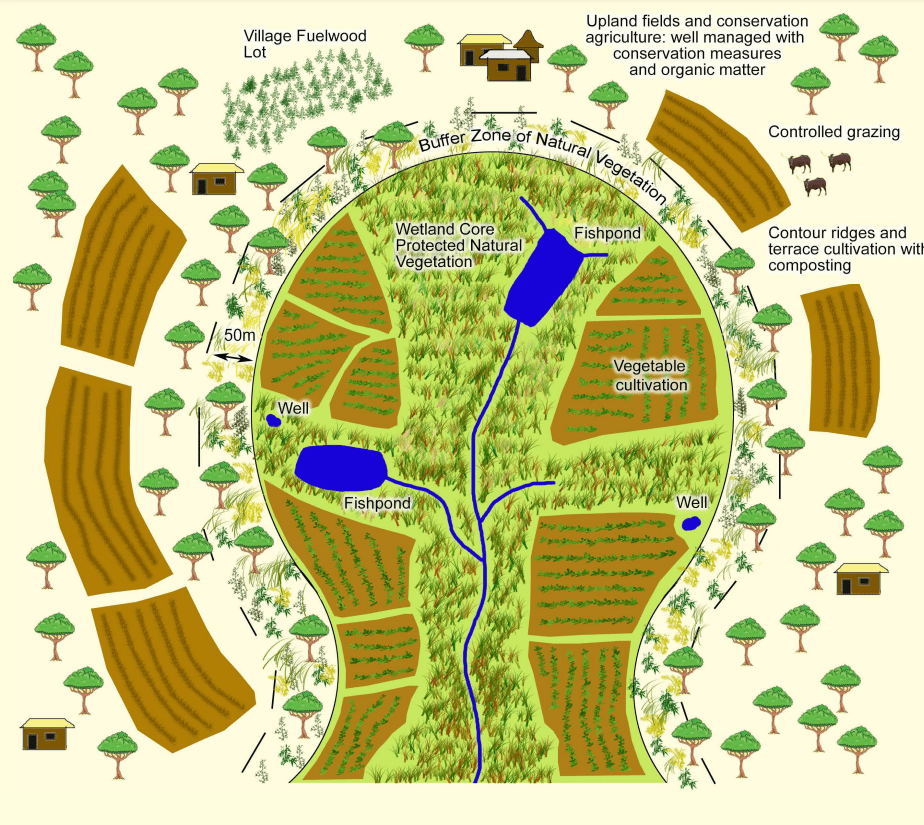Dr Alan Dixon’s work on developing a Functional Landscape Approach to managing wetlands has recently been integrated into the work of international non-governmental organisation Self Help Africa in Zambia, where it will inform the Zambian government’s ongoing efforts to implement climate-resilient sustainable development and its national wetlands policy.

Their PRESERVE Kafue programme is a three-year project that aims to improve the resilience, food, income and nutrition security of 3,000 households in the Monze, Namwala and Mazabuka districts of Zambia. The project will use the Functional Landscape Approach to promote the sustainable use of natural resources for diversified livelihoods and increased incomes, whilst protecting and restoring essential ecosystems within the Kafue Sub-basin. The project builds on SHA Zambia’s previous experience implementing Strengthening Climate Resilience in the Kafue Sub-Basin (SCRiKA) between 2016 to 2018.
For more information visit https://selfhelpafrica.org/

What is the Functional Landscape Approach?
The FLA has developed from over 20 years of research and implementation projects that have explored practical ways of reconciling the need for food security with environmental sustainability in sub-Saharan Africa. Since 2008, the University of Worcester has provided in-field training on this new way of thinking about wetlands for hundreds of NGO and government staff across Uganda, Zambia and Malawi. This has had a significant impact on people’s livelihoods and food security, as was evidenced in our REF2014 research impact case study.
The FLA takes a holistic, social-ecological systems view of the relationship between people and the environment, in both space and time. It applies this to wetlands and their catchments, and recognises how different landscape units in uplands and valley bottom wetlands are linked through environmental and social processes, and how specific interventions and management strategies can support and sustain these inter-related ecosystem services and livelihoods. Like the concept of sustainable development itself, it draws upon a range of ideas including integrated catchment management, social-ecological systems theory, ecological networks and mosaics, conservation agriculture and landscape character assessment techniques which seek to classify landscape units based on both cultural and environmental features. The FLA can be seen as one of many integrated landscape approaches which have emerged in recent years and which are increasingly being heralded as an important tool in the forthcoming UN decade on Ecosystem Restoration.
In practical terms, the FLA involves working closely with local communities as partners, to facilitate a process of participatory analysis, empowerment and development. This ensures any new wetland management strategies are firmly rooted in community decision-making and local institutional arrangements. In addition, it seeks to:
- engender an understanding of how different landscape units support different ecosystem services and livelihood benefits, and how these interact with each other;
- support the adoption of specific technical innovations in both wetlands and catchments (see diagram below), which build upon site-specific local knowledge of the environment to ensure environmental, economic and social sustainability;
- empower and strengthen community-based institutions that enhance resilience and adaptive capacity;
- build local capacity to manage ecosystem services sustainably, while enhancing peoples’ opportunities to develop their livelihood through income diversification and access to new and emerging market chains;
- encourage communities to monitor and manage their resources through a process of adaptive co-management.

To find out more about the Functional Landscape Approach and the University of Worcester’s recent three-year FLA research project in Malawi, check out our video here.
Alternatively, have a look at how students on our Geography courses are learning about sustainable livelihoods and the FLA during our Malawi Field Course.